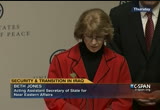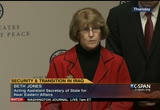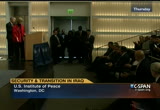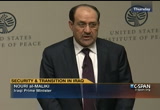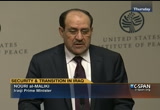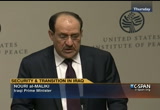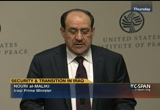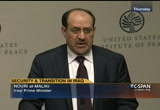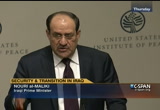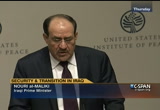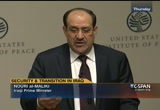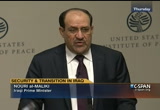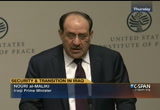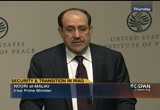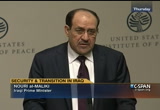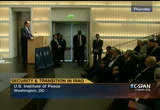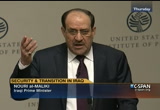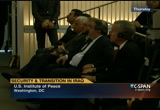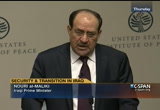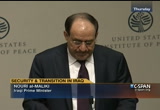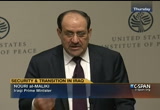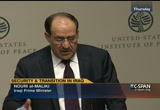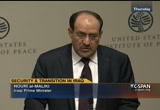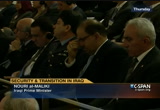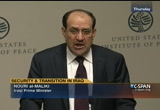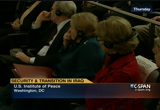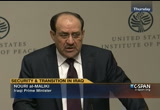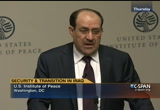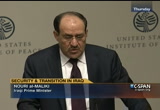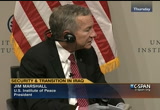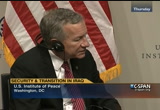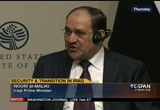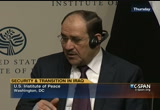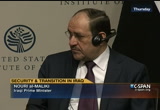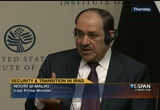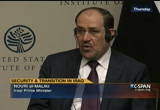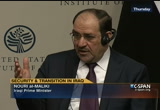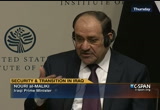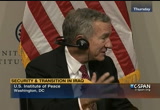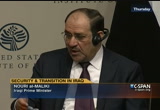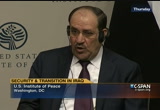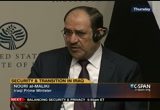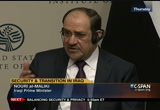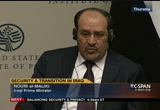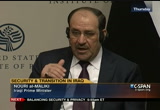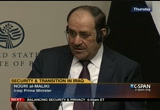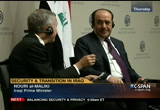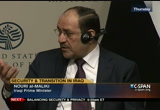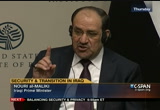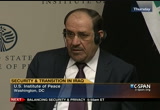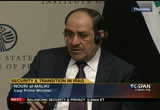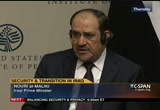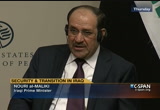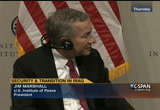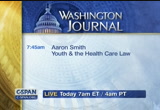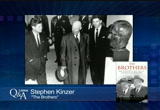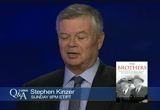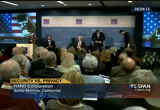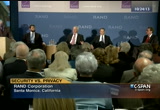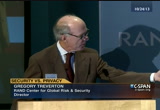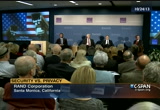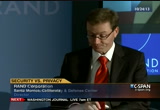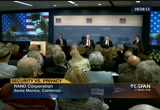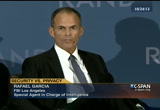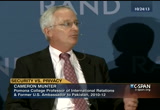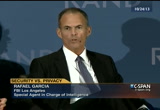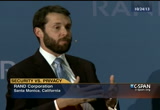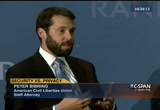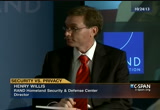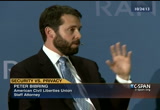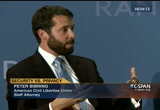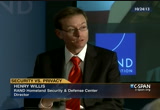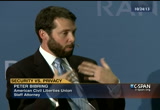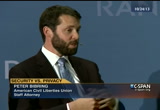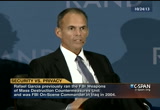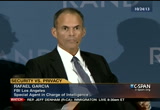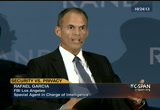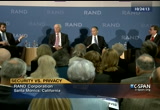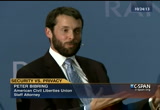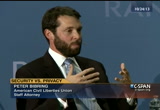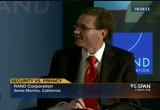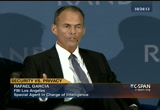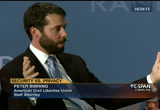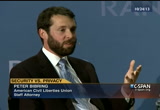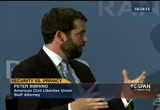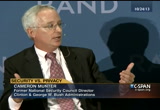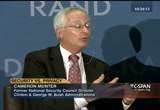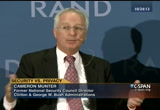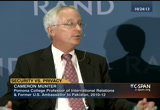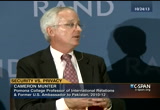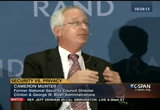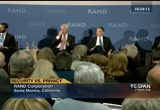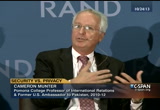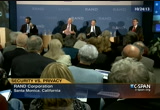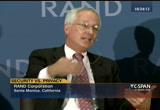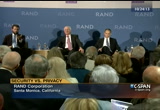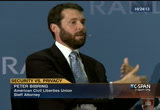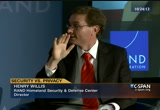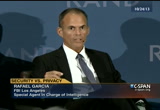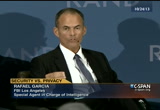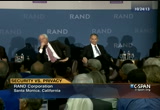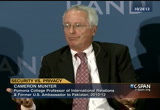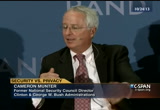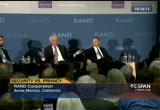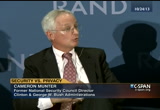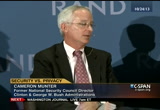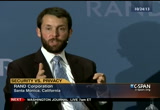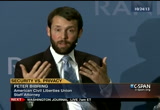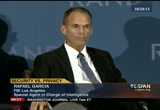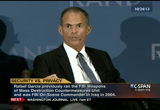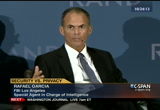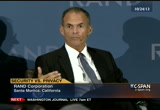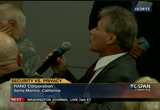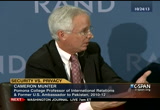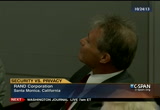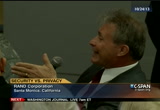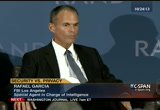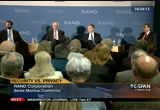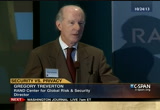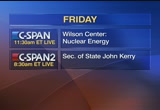tv Key Capitol Hill Hearings CSPAN November 1, 2013 5:00am-7:01am EDT
5:00 am
[captions copyright national able satellite corp. 2013] [captioning performed by national captioning institute] this affiliate has a base of operation in syria. it's later is subject to sanctions, and is designated a global terrorist under u.s. law. we continue to discuss security with the iraqi government, although this is only one aspect of our cooperation. political and economic tools must also be used to drain the recruiting pool of all extremist groups. we therefore welcome the prime minister's commitment to holding national parliamentary elections.
5:01 am
the strategic agreement gives the united states a unique role in fostering democratic development. we will work with the united nations and iraqi leaders to ensure that all technical requirements to ensure freedom and elections are in place. i want to assure you that if iraq faces these challenges, it will have a committed partner in the united states. our relationship was rooted in respect and interest, as enshrined in the strategic framework agreement, are permanent and enduring roadmap. i thank you for this opportunity and ask you to help me welcome prime minister nouri al-maliki. [applause]
5:02 am
>> in the name of god, may the blessing of god be upon you. i want to express my gratitude and esteemed to former congressman mr. jim marshall for his speech. i also want to give my thanks to mbassador beth jones for her warm words, and i want to extend to the u.s. my greetings and gratitude for their words. ecause of the development of
5:03 am
he mechanism and the new techniques used by terrorists who undermine interests and institutions in all countries. we are here in a strategic important institute. i want to thank you for allowing me to be here. i want to discuss the relationship between iraq and the united states. we cooperated with our partners, and fight terrorist. this allows us to win over terrorist in iraq.
5:04 am
all of the people of iraq were victims of the terrorist attacks led by al qaeda and the remnants of the regime in iraq. we are starting a new round of reconstruction after defeating l qaeda, who at some point stopped explosive in our resources. at some point, life came back to iraq. the economy started recovering. the construction developed. the security and economic level, and the political level, despite
5:05 am
a disbalance we witnessed. we were able to defeat al qaeda, nd this brought life and union back to iraq. why do we see what we are seeing today? why did we see the massacres? genocide of iraqis. ome believe that one component is fighting another component. his is not true. all of the iraqi people, the sunnis and shiites, are all killed. t is relating to the morale of al qaeda, who work to reach the goal by shedding the blood of iraqis and spreading terror.
5:06 am
hy is al qaeda back in iraq? the cooperation between our forces in the united states of america, why is terrorism back in the region? what are the main reasons why terrorism isn't moving in raq? it is a vision of the reality been impacted by the region. after the arab spring, which we upport because they targeted
5:07 am
dictatorships, no single regime can remain acceptable loss governing in such a wrong way for so many years. hence the revolutions, necessary to rebuild these countries and the people and societies on a sound basis, because they were isgoverned for many years. regretfully, they were able to get rid of the dictatorships, but not able to fill the void in the right way. a vacuum was created and al qaeda and others were able to xploit it and gain ground. they benefited from the fall of the state structure.
5:08 am
now, we are seeing the region that allows terrorism to the ack. it benefited some of the vacuum. you know perfectly well it is happening in libya and tunisia, and lebanon, and other countries that may have the same problem that all the countries are acing. al qaeda is clearly far by all countries and societies. we want an international war against terror. if we had tools to wage war, we would have a war against those who are killing people, calling for bloodshed, for ignorance,
5:09 am
and do not want logic to govern our daily lives. we are calling all countries to international conferences, and by counterterrorism, i don't mean fighting terrorism only in raq. errorism is worldwide. terrorism is not anymore a local production. but it international production. this is why we want indiscernible] it is coming back because of the political situation. we have two political tracks. the political track and the
5:10 am
regime in charge of some countries of the region. if we do not have political regimes based on freedom, on democracy, regimes to listen to the will of the people, and to go back to the constitution, iraq at some point in not have a constitution but a single leader who spoke for the constitution. now we have a constitution and a constitutional democratic institution. we have separation of owers. and independent executive power. independent do just repower. and other independent powers, such as high commission from elections. we do not knock democratic institutions. ut democratic exercise needs
5:11 am
maturity and learning, and raining. we have to unroot the legacy of the corrupted regime is used. we need ongoing training and development. thank god we were able to have five rounds of elections. the last one a few days ago in order to listen to the will of the people. this is how local government and the federal governments were ormed. the next element -- parliament also will be the results of the elections that we had in april 2014 and we will not agree on postponing the elections. they will be held according to the legislations.
5:12 am
of course we are facing many problems. we are facing terror. this is costing us money, effort, and lives. but still, parallel to this, we are building democratic institutions and infrastructure, developing services. had we not faced terror, we would have moved forward more han we did in building the iraqi states. nonetheless, we moved forward. iraq is one of the main countries in developing and rebuilding exports and so n. without terrorism, we leap forward in providing services to ur people.
5:13 am
the situation in the middle east has given a new chance for terrorists, who came back to rack on the situation started in syria. terrorist organizations found another chance to develop, to be armed. and to benefit from the political conflicts. the terrorists found a second fence. we support the syrian people and what it wants, what it aims for. a democratic regime based on the will of the people. we do not want the syrian people to lose freedom, democracy. we are warning, and we are fearing, and we are worrying of the potential success of terrorist organizations in syria.
5:14 am
if they win, we in the world should do everything to prevent his. in any country, in libya or other countries. all of our efforts should aim at preventing the success of al qaeda and other organizations because they would have a platform, a safe haven, and environment, and more apabilities. it will be even harder for us to fix the problems that they will be causing us. so facing terror, ladies and gentlemen, is not only about ilitary force. of course military force is important.
5:15 am
security forces are at the forefront of this battle. the developing of capabilities. destroying all this is necessary, but not enough. we need a sound structure. if there is a division within he socio-political structure, this allows for al qaeda errorist to develop. we are working on containing al -- al qaeda in iraq by enhancing social peace and finding constitutional solutions to our problems. of course we have problems in iraq. it is a new democratic regime. many other democracies way older than ours are still facing
5:16 am
problems. these problems are under control through the constitution. we may get angry, but eventually we reach a solution that is constitutional and that is adaptable. this is what you always see. you will hear voices, angry, differences. eventually we reach an agreement. internally, as we are preparing to fight terror at the military level, getting weapons, buying intelligence area did we are working on having harmony. you may ask who are you kidding? some of the ones killing iraqis are coming from other countries. they are also iraqis or assisting them.
5:17 am
i cannot say iraqis, sunnis, shiites, are ignorant and can be upportive of al qaeda. these exist, but we have terror come frling abroad. this is why the situation is deteriorating. the situation as a whole is good. there is no problem between unnis and shiites. the sunnis are killed today and the shithe shiite it is are killed as well. who is killing them? it is al qaeda killing all of the iraqis. sectarian banners and propagation of division. with the will of god we will remain united. we defeated al qaeda reviously.
5:18 am
today, once again, the sons of iraqi are with us. people again are seeing the situation is deteriorating because a qaeda and its organizations are back. those supporting it are back. it is leading to more unity. we will defeat the errorists. by our local efforts and our partnership with the united states. we came to washington to consolidate the partnership and the cooperation in which we move forward. at the regional level, we support the idea of moderation. we have meetings with other countries that are also seeking
5:19 am
moderation in the region against extremism. sectarianism and violence. we will have other meetings. in each meeting, more countries are joining because they want to be moderated. we want to mobilize to face difficulties we are facing. frankly, we need to say that al qaeda benefited from the international contradictions, and from experiences and expertise they gained, so the develop their methods the way they hide. this is why we also should find ew ways and new means to counter the means that al qaeda s using in the region.
5:20 am
help for us in iraq. when i talk about iraq, it is because iraq is very close to syria. the relations between the two countries are historic. only talk about the american role in iraq, it starts in iraq. it ends anywhere in the region where we can find strongholds of errorists. we are creating a strategy, new one based on the latest development. we have a new strategy based on mobilizing the security forces and the people, the support of the people, the clans, the tribes, the sons of iraq, and
5:21 am
enhancing intelligence expertise. we are talking with americans and telling them that we need to benefit from their experience, from the intelligence information, from training for those who are targeting al qaeda in a developed and scientific way. the iraqi people are preparing to give blood but iraq needs the benefit of training. the weapons necessary for counterterrorism, which has specific needs, it is not about artillery's. or f 16's. it has specific weaponry. aside from the political forces, we need intelligence information that will help us to target the strongholds and groups of errorists.
5:22 am
we're not saying the world should support says. of course we should, we are part of it. if iraq is not well treated, it will be disastrous for the whole world. this applies to syria as well. the international community, it is their responsibility as well. terrorism does not know a single religion. terrorism carries weapons, ideas, everywhere. they carry deas instead of flowers. al qaeda is a dirty wind that wants to stretch worldwide. we want to carry flowers, to expand them at the international level, to enhance cooperation.
5:23 am
and peace. we have a request. it is not only about iraq. it is about the country suffering from terrorism. many wars, internal crises in the region are proxy wars for egional countries. the most dangerous of these are the wars that are waged under sectarian banners. people are free to choose their religion. no one has the right, no one can force a belief on people. if someone wants to force what they believe on people, to force people to eat and drink, to think in the way they see fit,
5:24 am
and according to their own ignorance. this is dangerous. this has its own school, its own institute. it has its own school, it's own institute and own supporters. the problem is huge. the whole world is suffering from terrorist supporters. people are suffering from al qaeda. they want to live in peace. adies and gentlemen, you are itnessing an economic recovery espite what you hear at times. his is not having an impact on
5:25 am
companies coming and working in iraq and investment and in uilding. we will contain the potential disasters that we would have suffered had security forces not eased. hey are suffering in iraq. due to people wearing bombs and ntering cafés or funerals. and other gatherings and blowing themselves up. this is what is leading to huge casualties. otherwise they cannot control one single inch of the iraqi -- with a car bomb, they cannot kill as many people. his is why they are using those ignorant terrorist and criminal
5:26 am
who wear belt bombs and explosives and target gatherings and killing as many people as possible. in our new strategy, we are still discussing in iraq. we need to adopt a policy and mobilize the people of iraq. on the other hand, target terrorist and arrest them. e also need a scientific study for intelligence. that is the best prevention against terrorist, even better than weapons. i do not want to be lengthy. i'll stop here, but let me say that the relation between us and the united states is something we are proud of. we came here in order to onsolidate the strategic framework agreement at all levels. we must at all levels consolidate the strategies.
5:27 am
in education, economy, construction, energy, and every other possible dimension between our two countries. consolidate them and bring our opinions closer together and lead it into a genuine partnership. the middle east is facing it again. we shed blood together. we need to reach all of the oals we have set in an agreement signed. thank you very much. [applause]
5:28 am
>> that was a very impressive, very passionate and very informative and very frank. speech. and i thank you for it. i think we all thank you for it. i have -- as i was listening, it prompted a lot of memories. s a member of congress, i have visited iraq 15 or 20 ties with. can we turn the mic up a little bit? i have visited iraq 15 or 20 times during my tenure.
5:29 am
was on the armed services committee. earlier when i was a much younger man, i fought in vietnam. i spent time studying the problems of terrorism and counterterrorism efforts. it comes back to the populace. he populace in a given area is opposed to the terrorist, to those who do harm, they are pretty good at being able to see where the problem is and get in touch with authorities and let them know. that with authorities can deal ith the problem. i was listening to your as remarks, i was thinking, jeez, in iraq, with assistance from the united states, the armed services are in a position to deal with terrorists once they
5:30 am
know who they are and where they are. are you getting the support you need from the populace to identify the terrorists? that you can attack them, and if not, could you describe why you do not think you're getting the right kind of support? hat could be done? >> what i said previously is we got the support of the people and the direct people and the direct attribution with the security forces of al qaeda, the population is supporting the security forces. they are determining who that terrorist are and informing us. al qaeda did something that helped us mobilize the eople. because they target all iraqis. all of them.
5:31 am
very few iraqis have interest in eing part of al qaeda. as a whole, the iraqi people are suffering from al qaeda as an organization. this is giving us a new chance in mobilizing a all of the sons and the people are suffering from al qaeda. this is giving us a new chance in mobilizing. many of our operations against al qaeda and fighting them are he reason of information and a cooperation and intelligence we have from the iraq people. all of the iraqi people. all of the iraqis are supporting the security forces in defeating al qaeda. the iraqis are discerning at this point because their priorities are -- they are fighting al qaeda.
5:32 am
>> there are several good questions that have been asked by the audience. what do consider to be your key achievement being in two terms now in iraq? where do you think you have had some failures? hat did not work well and why? >> well, it is a question that is not easy to answer quickly. i cannot say that i realized anything. the iraqi institution, the parliament, the cooperation between them, everything achieved because iraq was about to collapse. people were not able to move out
5:33 am
of the north and the south. some of the regions were controlled by the errorists. there were many talks about dividing iraq in internal trife. we had militias who are abducting people. killing people. we had al qaeda. there was a huge battle goingwe had on a daily basis, 25 car on and bombs and beheadings of people and unknown corpses. destruction of the infrastructure. everything was about to. -- collapse. our main achievement was to reunite the iraqis and to start again based on our being iraqis and not based on our sectarian allegiances.
5:34 am
some of the people still believe in their concessions, but we are thinking like curds or sunnis or shiites. this is our main achievement. the second-best achievement is defeating al qaeda in iraq. al qaeda wanted to make iraq into the islamic state of iraq, but it failed. we were able to fight it and mobilized the people to resist and get stronger. we would have defeated them have a situation not deteriorated in syria and libya because of the vacuum i mentioned following the fall of the regime. al qaeda was able to thrive. extremism developed. sectarian developed. also, on the achievement level, universities are back.
5:35 am
students who dime the united states by the thousands to specialize came back. e also had the old contracts that increased -- oil contracts that increased our production and moved our budget from $25 billion to $130 billion this year. these all are our achievements. iraq was a complete disaster. war, weapons, destruction, everywhere. we stop the deterioration. we stood again on our feet. iraq was able to integrate its raq environment. under the previous regime and following the fall of the regime, we did not have one ingle -- on the embassy. iraq was isolated regionally and
5:36 am
internationally. 17 countries have embassies in iraq. we have good relations with them with exception of a few. we are working on these. we have wonderful relations with neighboring countries, arab countries, europeans and americans as well. we found our role again. we adopted the policy of non-interference in other countries affairs. we are looking for common interest. we do not want to use force against others. we are looking for cooperation between us and other countries. this is the best thing we can achieve. once again, we are still suffering from terrorism. lack of infrastructure, schools nd housing for the poor. despite the fact that we progressed a lot.
5:37 am
to rebuild what is destroyed takes lots of time. also one thing to mention in iraq, we were able to build security forces, army, police, and so on, with weapons that can defend the iraqi sovereignty. with the military ideology that does not talk about wars. talk about a state that wants to protect itself and to open up and engage other countries. an army for our defense. our security forces are aiming at defending iraq and its sovereignty and not targeting any countries. >> as someone who used to be a politician, i should know better than to ask such a question. [laughter] is there a common vision for governing iraq shared by the
5:38 am
political block and if the answer is no, what could be done about that? >> the answer is, yes. definitely yes. to the exception of those who do not want to work in the interest of iraq and those who have specific agendas. all of the iraqis say yes. we have a common ground, a common vision based on the constitution, the institutions that we built. if you want to ask me why you have problems, i would say democracy needs lots of time and solutions. e have a heavy legacy. moving from central government based on one single nationality into democracy is not something easy.
5:39 am
national identity -- all of this eeds time. none of the iraqis wants the return of a single party or needs a country without a constitution. the problem is about solutions to the many problems that we face in moving from dictatorship to democracy. this needs time. >> is there any present coordination between iraq and syria on security? especially preventing the flow of fighters and weapons? >> no. none between the iraqi and syrian government. e decided to be neutral. we decided not to support the regime. not to support the opposition. we want to support the interest of the syrian people.
5:40 am
we do not support the regime or he opposition. we do not want to support the opposition or the regime with weapons. what we want is a peaceful solution to a crisis. -- so any lasts, bilateral relations -- we're are trying to talk about solutions. e give initiatives about solutions to all friendly countries. at this point, for although source suffering, we believe the world believes the political solution is only possible way to the syrian crisis that is having epercussions on all.
5:41 am
>> do think the ongoing relations between iraq and iran comes at the expense of larger or better relations with arab countries, especially in egypt? this was not my question. [laughter] >> the audience has a right to ask any questions. i want to quell the fears of all of your respectful audience here and outside. raq is seeking friendship. we want to have open doors to all countries in the world. we do not want to have conflict with iran or saudi arabia or syria, not any single country nywhere. this is our policy -- when we have friendly relations with any country, we do understand that
5:42 am
it should not be at the expense of the interest of other countries. i want to say candidly and frankly not from an isolationist point of view, but i want to say that we need to make sure that the iraqi interest comes first. ur interest is to open up to everyone, to have no differences with any country. if we have differences with one country, we will work on differences and find solutions. we used to have problems with some countries. we're are moving forward into solving these problems as happened between us and our eighboring turkey and some countries of the arab gulf state. we had problems with kuwait, but
5:43 am
we worked them out. so, our relation with iran and any other countries is important, but it will never come at the expense of iran or the expense of our friendship ith other countries. if you follow iraq's foreign policy, you would see that the iraqis think independently and not according to the interest of any others. we have a partnership an agreement with the united states. this is something some other countries do not like. that we like it, this is what matters. be believed to have a strong relation within the united states. if others do not agree, it is their problem. they cannot impose anything on the iraqis. if they want to be our friends our friendship does not impose on us being enemies of others. >> how do you respond to critics -- this is not coming from me,
5:44 am
but a question from someone else -- say you are consolidating power and this has adversely affected iraq's democratic process? >> the constitution and ruling in iraq gives prerogative. this is something i state clearly. let me know when i act in an unconstitutional way. if i act in a way that is not acceptable to some of our partners, as long as i am committing to respecting the constitution and as long as i use my prerogative in a constitutional way, there should ot be a problem. if i act in an unconstitutional way, please let me know when and how and tell me and i will go
5:45 am
back to the constitution. sometimes there are disagreements with some partners. we need to be wise. we need to go back to the constitution to work out differences. i never stepped off of the constitution. one of the american leaders or officials when talking with some of our partners told them, this is your constitution. you wrote the constitution. the constitution gives these prerogatives to the commander in chief of the armed forces. and he does not have a deputy. if you do not like this, change he constitution. you can not ask someone and hold him responsible for -- >> i'm kind of glad you are the one who are answering these questions and not me. here is another one. ny sunni leaders have faced
5:46 am
charges of terrorism like the baath party. at the same time, many of the same leaders who have faced charges have been very successful. what does that say or mean for the country that they have this sort of populist court? that is somebody else's question. glad you're answering it and not me. >> yes, of course. everyone has the right to be a candidate according to the constitution. if they are elected, so be t. some of the former baath party candidates are being elected, but not all those who re members of the hearty still --have the mentality. party still in the security forces, we have officers in the huge majority were officers are of the baath army. they force everyone to be part
5:47 am
of the baath party. if some people are supported by the people and can when according to the constitution, hey are welcome. if the constitution does not allow them to be candidates, they will not be. if their candidacy -- let me say at any rate, iraq is still a a single party regime. anyone who was not in the baath party was excluded or sometimes targeted and killed. so, no, if some of those people are candidates, they can get votes, but none of them was a candidate and stated officially that he was from the baath party. we that the baath party can at a
5:48 am
certain level, some people have a certain right in the baath party do not have the right to be candidates according to the nstitution and also to the high commission, independent commission for the election because it has to approve the candidacy. otherwise, we have no problem with a candidate. > could you elaborate on the means used by the iraqi government in the efforts it will make to ensure that iraq's christian minorities have a future in iraq and are not forced to leave the country or being faced with terrorist threats and blatant iscrimination. >> well, terrorism is of a single component, including a christian minority.
5:49 am
they use an ideology. al qaeda uses the same ideology against muzz lips. even more so against christians. they kill everyone, including christians. christians are part of our history, of our country. they are good, peaceful citizens. they love their nation. they are committed to supporting it, but al qaeda has another perspective. al qaeda feels they should kill all those who do not think alike. many of them were victims. this is the case of all of the iraqi people. they targeted churches and mosques and sunnis and shiites osque. religious places. they killed christian leaders and occurred and arab -- and kurd and other leaders. because a number of the christians is limited, it seemed that they were targeted. we supported them strongly, we provided them with protection,
5:50 am
o all of the christian political leaders and holy places. when i met the pope, i asked him to ask them to remain in iraq and tell european countries not to encourage iraqis who are christian to leave iraq. they are fighting al qaeda. i told him i do not want to see middle east that is void of christians or a west that is void from muslims. christian in the east and muslims in the west is necessary for cooperation and the coexistence of the dual religions. the situation is much better. we are supporting them. we respect them and love
5:51 am
them. they are respectable. i do not deny that they were targeted, as all of the iraqi people were targeted. >> a question -- from the tour de force we saw today, i think i might know the answer to this -- have you decided to seek another term as prime minister next year? if so, what are your plans for the election? [laughter] >> well, i did not know what would justify this question. i have been asked every single day that this is something that is up to the iraqi people. they decide. i do not want to speak for the iraqi people. now of course it is a very, very, very difficult job. it is harmful and destroys
5:52 am
people. the interest of the iraq comes first. the one that has the decision is the iraqi people. even if it is at the expense of my own nerves, i will act responsibly as did all of my partners in the previous two governments. it is up to the will of the people. if they are looking for change, i welcome that and i am part of it. >> prime minister, iraq success is success in the middle east and that is success for the world and success for the united states. we want to be as helpful as we possibly can to iraq so it can be the success that we know it can be. thank you for coming and thank you for your willingness to respond to difficult questions. thank you to the audience for their patience and for your attendance and for some good questions. i think the meeting is adjourned. if you will wait for the
5:53 am
official party to leave, we would appreciate it. thank you all. [applause] >> on the next "washington journal" aaron smith on why his group is encouraging young adults to sign up for healthcare. and then california congressman jeff denham talks about immigration reform and why he will join democrats in co-sponsoring a plan to give immigrants the chance to attain
5:54 am
citizenship plus your emails, phone calls an tweets. ive at 7:00 eastern on c-span. >> john foster dulles had recently died when that airport was being recently built and president eisenhower announced it would be named dulles airport. after kennedy took over, he did not want to name it after him. finally the decision was made to name it after dulles. you can still see the film clip of kennedy opening the airport with eisenhower there and alan dulles there and he pulls back the curtain and behind the curtain is this giant bust of john foster dulles and that stands in the middle of this big airport. i went to see it while i was writing this book and i could no not find. i started asking the security guards where is the big bust of
5:55 am
dulles. nobody had even heard of it. it was a long process and thanks to the airport authority, i discovered that the bust had been taken away from the middle of the airport and is now in a closed conference room opposite baggage claim number three. i find this a wonderful metaphor for how the dulles brothers were able to make and break governments, have now beenfectively forgotten and airbrushed out of our entire history. >> the dulles brothers led both overt and covert operations for a good portion of the cold war. find out why the ramifications can still be felt 60 years later sunday night at 8:00 on c-span's "q & a." >> this painting was originally
5:56 am
painted as my grandmother's official white house portrait. in the 1960's, lady bird johnson went looking for portraits of first ladies to rehang in the white house. she thought that was important and she looked high and low and could not find my grandmother's official portrait and called her and said mrs. truman, do you know where that painting is? we can't find it. she said yeah, it is on my wall. mrs. johnson said you really shouldn't have it. it belongs in the white house. my grandmother said no, that is my painting and it is on my wall and that's where it is going to stay. s mrs. johnson tried a couple of more times and then gave up. e first ladies saturday on c-span. monday we look at first lady maimy eisenhower. >> the rand corporation recently
5:57 am
had a discussion about balancing privacy and security. pakistan mbassador to and the aclu attorney. this is an hour. >> now, let me introduce the speakers. i won't tell you -- you're going to figure out who they are once they start to talk. they are not seated yet. it is a great topic and a great panel. henry wills is one of the young stars of moderate. he is both a senior analyst and professor at the rand graduate school. that is him on the far end. he is an expert on risk analysis. the decision techniques across a wide range of issues and most recently testified before congress to apply risk analysis to homeland security issues.
5:58 am
next, if i get it right is rafael garcia. he is a special agent in charge of intelligence at the f.b.i. n los angeles. mr. bill lewis was unable to participate and we're glad that george can represent the f.b.i. tonight. he is working various capacities since 199 5, focusing on terrorism and weapons of mass destruction. his work has taken him to what we call fort hoover in washington. f.b.i. headquarters and also has been the f.b.i.'s deputy on-scene commander in iraq. he was an army veteran before that. next to him is ambassador cameron mitchell -- sorry, cameron munter. cameron mitchell is somebody else. sorry. [laughter] not to be confused. i apologize. he is a retired career diplomat.
5:59 am
a professor at international relations at pamona college. the ambassador to pakistan. therefore will have many hair-raising stories about that relationship in a period when u.s.-pakistani relations were, shall we say, not easy, including the capture and killing of osama bin laden. before that, he had an easy assignment in baghdad where he had responsibility for overseeing the planning for the drawdown of u.s. troops. before that, he was ambassador to serbia. deputy chief of missions in the czech republic and poland. he has also served on the national security council under presidents clinton, bush and other departments in the department of state. last, but not least right here is peter bridring. he is a senior staff attorney at the aclu staff office.
6:00 am
has won important cases against the lapd. against city of moreno valley which was raiding he has been a law clerk at the u.s. circuit court and has had a distinguished career outside and inside the aclu. please join me and welcoming our distinguished panel. [applause] henry, over to you. >> thank you, gred. -- greg. aboutare here to talk security and privacy. events of the last two years have put these in the forefront. the boston bombing reminded us that terrorism is still an ex
6:01 am
existentialnd threats. a month later, edward snowden revelationsing about massive surveillance that our government was doing. this kicked off a healthy public debate about how we balance privacy and security. as you heard from greg, it is our mission at rand to improve the quality of public policy decision-making. that is why we brought together this panel. people who have different views. everyone here has deep expertise. we are hoping to have an open discussion. there will be some things and questions they will be unable to answer because of the situations. we will try to guide the discussion over a few topics. we will start with trying to understand what works with intelligence security and why we
6:02 am
feel we need to put measures in place. we are then going to turn to what are the increased risks of mass collection of data on the public? are the what implications of this on how we implement foreign policy. ofserves as an overarching the things i would like to see us cover. i would like to start with the first question on the rent we face and why we need security. if there are no random -- no benefits, we do not need security. how has the threat of terrorism changed over the past decade and how have our methods adaptive? >> it has changed in relatively significant ways. it is a far more diffuse threat than it was 10 or 15 years ago. is not necessarily align to
6:03 am
buy group, but principally by ideology and other driving fact factors.-- driving threat seems to progress at times very rapidly. what may appear to be a localized threat today could be on our doorstep tomorrow. lastly, they do not necessarily inear based on their actions recent actions are indicators of that. big and complex attacks are their goal or their aim to accomplish their objectives. comparisonsmall in attacks that are relatively simple to put together and execute seem to be a preference.
6:04 am
the same tools we all have to communicate in a worldwide capacity, through the internet and other social media, which makes communicating plans and intentions relatively easy, and also to gain support and materials. these are some of the challenges we've inc. we are responding to. -- >> these are some of the challenges we think we are responding to. someone who spent the last 10 years out of the united states, this is not something americans will seek to deal with on their own. this is going to take some sort of cooperation with foreigners, those who are friendly to us in --erstanding those foreign and understanding those foreign elements who are not really to
6:05 am
us. it is not just an american task. you make a big mistake if we see it as only hours. this, whatecurity types of steps is important for us to be able to take? organization's if, we have to show due diligence that what may dismiss even be the smallest allegation. but to do that within the construct provided to us through congress and stemming from our constitution. leave no stonewe unturned and that we do that with the responsibility to the citizens. that aspect of our work is present every day. predicated
6:06 am
investigations and facts that can be substantiated, we must balance that with the responsibility to maintain civil liberties and privacy. we cannot do everything that may be available to us until we can demonstrate lesser intrusive methods have been effective. every day, men and women with the fbi work toward accomplishing that mission recognizing they have that policy civily of liberties and privacy along the way. >> let me jump in here. perspectiveider's looking at law enforcement practices, not only federal law enforcement, but also local enforcement like lapd or in way that lawd, it seems enforcement has shifted from a
6:07 am
traditional law enforcement model -- finding bad guys, investigating them, seeing if you can find their friends and invest gave them, to more of an intelligence -- and investigate them, to more of an intelligence , collecting information and collecting dots, which might appear innocuous. and put together, it might reveal some sort of crime. whether that is the nsa program gathering metadata or suspicious activity or porting programs and -- suspicious activity or reporting programs. there has been a shift to collecting lots of data. there is a question as to whether that is an effective
6:08 am
webster'sk at william community report on the fort hood shooting. one of the conclusions is that missedgence analysts intelligence because of a relentless work load created by an explosion of data they have to process. there is a question about whether this is adding more hay to the haystack and an ineffective way to police. >> thank you for bringing up those points. you also highlighted that law enforcement has a couple of rolls. they have the role of investigating crimes. -- law enforcement has a couple of roles. isrge, you mentioned there an effort to try to do this within the realm of protecting civil liberties.
6:09 am
there is a history of cases where some of those civil liberties have been abused so checks have been put in place. i would like to ask your view on where those checks are effective and where you might have some concerns. there are a lot of checks that have been put in place. some are less effective than others. we arethe nsa programs seeing, a lot of checks have proven ineffective. the fourthly, amendment sets up a warrant requirement. no warrant shall issue but on probable cause. shift to a more universal collection mechanism requires the bypassing of that. whether that is true, the oak
6:10 am
warrants issued -- bulk warrants issued through fisa courts or the data gathered outside any kind of warrant. but that model seems to be and in effect of way of overseeing e way ofectiv overseeing. what is in effect it is the secrecy. is of the things that stunning about the revelations and the scope of the programs is how far they have gone without any public discussion. also, in the context of the fisa judges we have seen fisa saying, we are not the most effective check on this. we cannot evaluate the to us inon resented
6:11 am
one-sided situations in a one- sided preceding where there is no adversary. he cannot supervise what is being done with our orders, what is being acted on, because we are just a court. the secrecy and adversarial court is ahe fisa huge problem that needs to be addressed. --that brings to the next brings us to the next part of this discussion. we have heard about the things we need to do to respond. i get asked a question, are we safer because of what we do? in many ways, that is the wrong question. is,question we posed that what have we gained in terms of safety and what have we lost? i will turn back to peter to start with. what are some of the risks of mass surveillance?
6:12 am
it is always difficult to articulate the value of privacy thomas but i will give it a shot. value of privacy, but i will give it a shot. there are a few answers to that. most people are doing something wrong. [laughter] think.be not what they running red lights, sloppy reparation of your tax returns. your taxation of returns. people do things wrong. government does not always target bad guys or who they think are bad guys for exactly the reasons you might inc.. all capone was -- reasons you might think.
6:13 am
capone was gotten on tax evasion. a lot of times we see what seems to be contextual charges brought. an investigation that has a national security agent on it results in an immigration charge or a the poor patient proceeding -- or a deportation proceeding. somebody gets into their head the idea that you are doing something wrong. that can create a problem. government is made up of people who are fallible. the powers can abuse that has been given to them. that includes world actors. actors.
6:14 am
edward snowden did not do what the government expected. in los angeles there was the public disorder and intelligence division that compiled information and used it for political purposes. information that is collected for law enforcement and security purposes is often used on political groups. provide some perspective. the fbi operates through mandates that are codified in by our laws written congress and signed by the president into law. that process has produced, appropriately and necessarily, oversight, not just in the executive branch of government itself. the department of justice is obviously in the fbi as well.
6:15 am
but also with the congress and through the court system and the judicial branch. that is to make sure that they and and day out, the work we are out, theday in and day work we are doing is representing the people of the united states and is what is required at that point in time. they have an expectation that we use those tools. expectation eagle that we balance the use of those expectation that we balance the use of those tools in a predicated investigation for which we are allowed to use those tools to protect civil liberties and privacy. just because we have the authority by law to use certain techniques, we have a
6:16 am
responsibility and a requirement to do so in a manner that is least intrusive whenever possible. even an interview is to intrusive. think you have been involved in wrongdoing because andave received information we can't corroborate aspects of it and we are authorized to open -- and we can corroborate aspects of it and we are authorized to open investigation, we can have a discussion with you at your work lace. the interview itself -- at your work place. the interview itself is less intrusive, but doing it at your an intrusion on your privacy. this causes people to have concerns they should not have. we take care to measure the technique used and the manner it
6:17 am
might be used before we do it. oversight is provided by the as well as those individuals responsible for conducting the investigation. that happens as a matter of practice every day. >> some of the discussion thingshts a couple of that leads to the conflicts that we are talking about. maybe because of this there might be intimidation. there might the first amendment concerns or the possibility of an unwarranted search. you expand on the way whether or framed not these constitutional concerns are at risk? >> that is certainly a concern. we have seen that. it goes back to the point i was making earlier about surveillance being targeted
6:18 am
against political groups, whether it was surveillance of martin luther king during the 1960s by the fbi, or whether the fbi placed its own undercover agents inside the occupied sandy relief efforts. that has a real potential to chill people's political people who may want to go out and participate in occupied sandy relief efforts or the original occupied efforts. it may be chilled if people think their participation may be noted and that may have repercussions down the road. this is a good audience to convey that point. there are young people who might want jobs that rants or with the state department who might have second thoughts -- you might or with the rand
6:19 am
state department who might have second thoughts. to go back to the oversight, there is a legal issue with oversight by the courts, particularly surveillance. says is a doctrine that you cannot challenge a program unless you can prove you have been harmed by it and your objective reaction to the existence of the program is not enough. you have to prove you have been targeted. nobody can prove they have been targeted by secret surveillance programs. the aclu has brought the challenge of warrantless surveillance programs and they have been thrown out. says, we understand you may be a journalist and you let -- you may be chilled because you have a reasonable believe you may be monitored.
6:20 am
you cannot prove you are being monitored. we are not going to take the case. that takes the court out of the oversight picture and that is a real problem. isone aspect of some of that the concerns you discussed about byple being affected awareness of surveillance not choosing to do something. isn't that already happening? about employers looking at facebook sites. l thete an e-mail on gmai other day. based on what i wrote, it asked me if i wanted to put something on my calendar. with changes in technology, what is the fuss about? ifs is an open question, anybody would like to respond. [applause] these types of dialogs are
6:21 am
very important. these discussions are the rings our electedgs officials consider when they decide to make changes in our laws. things that change the landscape of the laws that were enacted when those things did not exist. that is very important. to get back to the point on political groups, for example. a scenario where we have a situation where we have a , adicated investigation violation of federal law has occurred or will occur. it is determined that the people involved are either a political candidate, a politician, or involved in a political organization. .hat steps up the oversight we recognize the effect that might have in chilling people's involvement in political activity.
6:22 am
it gets even more oversight and scrutiny that it would if that identical situation existed and there was not a political entity or an individual involved in politics and that the tick interact. involved in politics in that particular act. differently than we would in other circumstances that do not have that dimension involved. i recognize that framework is there in the fbi. an internal guidance structure. i am not sure how widely it is applied with political leaders. clinical activity is a broad activityn -- political is capable of broad definitions. martin luther king is going to
6:23 am
go through particular procedures. with respect to the technology question, there are a couple of things. we are generating a lot more data in this digital age than we were before, whether it is e- mails or your cell phones sending out information about your location. ramifications, some of which are small fixes and some of which are big fixes. there is the third-party doctrine and law that says if you are sharing of nation with a third party like a bank or your cell phone provider, you do not have an expectation of privacy with respect to the fourth amendment. that is a doctrine developed and the 1960s. maybe then we felt we would not have an expectation of privacy and data.
6:24 am
but today, all of our communications and location every moment is being tracked. there is a question about whether we need to shift our view of what is private with respect to corporations. we cannot have a different standard for corporation than the -- corporations than the federal government. we could not ask the police to get a warrant for information they could buy. we need to think about the relationship we have to our data and whether there is some privacy we feel in our data even when it resides with a corporation and changing that framework as well. i have wondered why i am here. it is finally figured out
6:25 am
to make sure these guys to not get too close to each other. [applause] not that i am going to give you any ink that is more transient on domestic -- anything that is chanttransient on-- tren on domestic affairs. i am not trying to say because textual boundaries my colleagues contextual boundaries my colleagues are speaking on our nine/11 the threat from did not come from inside the 11 did nottes -- 9- come from inside the united states. there is a very real threat outside the united states, one that is not always playing by the same rules that we do. while i am not critical of the
6:26 am
need to have a debate on that level, i asked that we open up a dimension of taking into account the rules foreigners play by. the germans have a real problem with secrecy. that makes them very concerned -- when theye out what is a sincere effort to sift through this data -- similarly, the french. the french did lots of naughty things. brazil has even talked about this. means are going to have a of coming to an agreement on this, we must not limit it to our domestic issues whether they are legal, moral, or practical. it is not just about us. it is about other people thinking in other ways.
6:27 am
many of the ways cost the attack. caused the attack. rules we play by, it is important that we make our situation clear, but not ignore the fact that there are different cultures and different historical backgrounds. we are not used to talking about things. we are talking about the denial of due process to american citizens. we are also talking about the denial of due process to people who are not americans. what does the constitution say about that? not much. that does not mean our constitution is wrong. what it would be a mistake not to think about the impact these the world. around i wanted to throw that in. [applause] -- i would like to follow
6:28 am
that up. you did broaden the discussion a bit. there is a threat we face. surveillancebout that started a discussion. did they change anything about our ability to conduct foreign policy or to understand the threats we face? >> one of the lessons of the last 10 or 15 years is we are not doing this in a vacuum. the intelligence work around the world and the law enforcement cooperation -- for all you read in the newspapers about the difficulties with other countries, it is extraordinary the cooperation we have from other countries. i would like to see a better understanding of that in the public sphere.
6:29 am
i minded people can agree on certain precepts. understood that there are certain rules we need to follow together. that cooperation is an untold story that is quite positive. on the other hand, if we simply uncritical use of data not taking into account the fact that the world is a complex face, we are going to make the mistakes you make when you do not understand a foreign culture -- thenot apply the code intelligence to the way people act. we work to support our law enforcement officials in what they are doing. the need to think about the way intelligence is organizing -- is organized and the way intelligence works. in certain parts of the world
6:30 am
like pakistan, where our efforts to work against terrorism are poorly understood, we do ourselves a disservice if we rely too much on secrecy. giving you a general account, we have a program known as the drone program in that part of the world. it is a secret program, but it is something you read about on the front page of the new york times. there are those of us who work in the government who think that is a program that can be a humane program. drones are accurate weapons. if used judiciously, they can savage way of fighting a very real war. if the public understand this correctly, if governments share this information in the right way, our chances of loathing a national and international
6:31 am
consensus based on the understanding of what this weapon can be used for is much later. the secrecy has held us back -- is much greater. go on discussing this among ourselves. the goal is to have a discussion. i would like to open it up to discussion from the floor. if you raise your hand, they will bring you a microphone. towe will do our best identify as many people as we can. we will start in the front. >> thank you for a fascinating conversation. mr. ambassador, i have two questions for you. focusing on foreign leaders and their communications, how has it impacted our ability to work with them in trying to get them to get more security taking care of?
6:32 am
is that the fault of edward snowden for releasing that information? the other question i have -- so it me start with that don't forget it. one thing people are talking about is where are the limits of trust and the limits of judgment? ily harde extraordinar things to measure. usehave powers that you can . should you use them? , is what has happened hurt us? yes. when you are dealing with foreign governments and they are surprised by what you do, that is basically diplomacy 101. you try to build trust.
6:33 am
if you do not build trust, it is harder to do things. doesn't mean you should not have surveillance? that is something for our friends to discuss. do you doon is how that? how do like-minded people develop the judgment and trust to work together? a guy like edward snowden -- remember, there is an old saying. i hope none of you are .ournalists the difference between a diplomat and a journalist is that a diplomat knows many things he does not say. a journalist says many things he does not know. [laughter] trying to be cute, what we are trying to say is, is it wrong not to say everything? if i am in a sensitive conversation overseas and i am told something in confidence and that message was the person's
6:34 am
life in danger -- and that has happened to me. when a guy like radley manning or edward snowden decides he has -- bradley manning or edward snowden decides he has to put that in public, they have roque and down trust. it is a very -- they have broken down trust. orill not come down one way another. as a diplomat, i do not do that. -- makingge you someone a hero or a villain is a difficult question. them to blast out totally in public without any secrecy, that can be a file asian of the privacy people had in talking to of the a violation privacy people had in talking to them.
6:35 am
the only way you can deal with with a scale of judgment. sorry to cut you off. i would like a definition of privacy today from each of you. given the data that floats around and given the notion that the government is collecting ise a data -- metadata, what privacy as you see it today? do we have a right to it? i have a quick and totally useless definition. youacy is information reasonably expect not to be shared with some section of the population.
6:36 am
it can be situational. you can have privacy vis-à-vis some individuals. and changeto the gym in front of people in the locker room. of younot expect a video changing to be posted on the internet. of -- the trouble is in the definition of what is to expect not to be shared. that is a discussion we have to have as a society. it is all about societal expectation. andheir troubling descriptive aspects, there is what we do not share with others. and there is normative aspects. millions of people go online and inadvertently shared data that they do not -- that they think
6:37 am
they are not sharing with other people. but everybody is doing it. is privacy what we are actually doing or what everybody thinks we should be doing. anotherl just add aspect of our research here at rand. it was motivated by a seminal court case. a warrant was given for a drug bust based on monitoring of a house with an infrared camera that showed there was more energy coming out of that house than you would expect. lights.re grow should there be an expectation of privacy of not being able to see heat coming off of a house with a camera. show that advances
6:38 am
our expectation of that may change. should we move to someone else? >> privacy is defined from a law by caseent perspective law. decisions made by the courts, particularly the supreme court. we make adjustments. in a more practical sense, when we swear an oath to protect and defend the constitution, we do so with an acknowledgment that it contains civil liberties and a privacy responsibility. theave to apply responsibility to maintain privacy strictly within keeping with applicable laws, but also an understanding that the main responsibility from a law enforcement perspective and the domestic intelligence responsibilities is that we do
6:39 am
so in consideration of the individual that is being looked at. in the and, what we are looking at every day is simply the truth constrained by applicable laws that we are allowed to operate recognition that we have responsibility to protect civil liberties and privacy. back constrained drives the decision-making -- that's constrained drives the decision- making of our agents. the truth could be exoneration. his individual we are looking at deserves not to be affected by this investigation. if we determine that the truth indicates this individual has done nothing wrong, that is important. we see that as essential to our responsibility. that is why we conduct our investigations as we do taking sure that if the truth took us to a different place, other
6:40 am
people were not damaged by it. be as, there seems to horrible cost associated with some of the revelations that have come out recently. the united states' entry tatian has taken a huge beating. reputation has- taken a huge beating. whether it be in brazil or the european union talking about not sending data to the united states. there is a downside to the revelations about everything we have been doing. if anyone ever consider that this stuff became public knowledge that we would be in deep, deep, deep trouble with our allies? we are also enabling our enemies. chinese telecommunications
6:41 am
vendors are saying you should consider using our equipment because it is not bugged by the nsa. [laughter] this is not being reported. what about the costs to our reputation and the consideration that maybe if we can do some things, we should not do something seattle -- we should not do some things? whack at this a one. i think there is a tendency to think that because this has happened and it has been damage -- i agree with you -- it was something people thought about and did not think it was important. there is a problem that when you difficult analysis to find a very bad people and you , a lot ofs of data
6:42 am
people put their head down and just work at it. that leads to the other question. who is making the policy decisions for those people. think about did not it -- there is something intrinsic about this operation that makes people put their nose to the grindstone and do it. we may be learning this the hard way. this has to be discussed at a policy level with our friends around the world so that it is a question of, yes, this is hard work that does not lend itself to reflection because it is so massive. elements be one of the we get used to putting on the agenda for the asia-pacific summits, for the --
6:43 am
for the larger meetings we have. i do not see that as a way to do thebrazilians -- to dupe brazilians. it is a result of the massive problem that we have not caught up with. we have to talk with the brazilians of the french and everyone else about this. they are not going to not want to talk about this. >> may i just crisis my remarks to you, cameron, when i visited -- ia, i have called of theit the amherst
6:44 am
west. i read devastating reports that the drones are not doing what , incrediblyd accurate. the wall street journal is pointing out regularly the disastrous side effects of civilian killings. how do you reconcile these two points of view? > -- doce i do not go to not want to go to jail, i will not tell you everything you want to year. [laughter] claims have been made about the use of drones in pakistan or yemen where they say there are numbers bandied about of civilians killed. my experience is that those numbers are grossly exaggerated. reason i call for greater openness is that we have
6:45 am
a greater story to tell than we are allowed to tell because of of secret nest -- secretness this program. i am not allowed to talk to you about numbers. if we could figure out a way to be more forthcoming with the public in the united states and with the public in pakistan and , wewith pesky british ngo's rather thanhe case having speculation that is ideologically motivated. pro-american reports saying there are zero people dying. you [applause] [applause] was a reference made to
6:46 am
the difference between intelligence gathering and law enforcement. -- how can we draw a between law enforcement activity and the fishing activity and then national security interests in gathering information to prevent threats to national security? can start with the civil libertarian viewpoint and open it up. perspective, it is about particularized suspicion. if law-enforcement targets individuals because they have a reason to believe they are doing something wrong, that is a law-
6:47 am
enforcement model and it is a model that has worked well to address crime, even serious crime that causes dots of brutality throughout this country. that is the model we used to address gangs or organized crime. what we have seen is that there has been a shift to that. looking at the nsa or domestic programs, in southern california, local jurisdictions are setting up vices plate readers everywhere -- license everywhere.s they want to gather large amounts of information on everybody whether they have committed a crime or not.
6:48 am
internalhanged its regulations to allow a category of assessments that do not acquire a factual etiquette. that is true. post 9-11 there is an acknowledgment that we cannot simply work on discrete matters that are the focus of predicated investigations alone. there is an expectation that in , wematters of threat issues look forward. that is an expectation that the others that the fbi and prevent things from happening before they happen. the important question is, how is that done? to ensuring we are protecting civil liberties and
6:49 am
the privacy of the american people while moving forward to protect the where people from criminal threats. the attorney general authorized the use of the assessment process. the assessment process is intentionally and deliver the limited. it must have an authorized purpose. may notrized purpose be, shall not be an assessment based on what is already protected by the first amendment. ensure we are not pursuing because of religion, because of national origin, the cause people are out assembling peacefully and freely as they are allowed to by the first amendment and so forth. it makes it clear that you cannot conduct an assessment if reason your soul -- sole
6:50 am
for doing it. there are appropriate reasons for doing assessments. we can talk about migrations of gangs. when we are looking at the evolution of the gang problem, it is a problem we face today. what is it going to look like tomorrow and what can appropriately be done by law enforcement to address that problem tomorrow today so that we are not dealing with another transnational gang tomorrow? that may mean that in that authorized purpose with clear objectives and trying to define what that gained might look gang, they -- might look at population data where it might be logical based on historical examples where it might crop up tomorrow and engage on explaining what the
6:51 am
problem might be, then involving many parts of the community, not just the law enforcement dimension. being proactive in our actions to take care of it. a lot of it has to do with engaging community leaders. what can we do together to prevent it cap go it is good for communities and for law enforcement -- what can we do to prevent it. it is good for law enforcement and good for communities. we do not wait for the lead to come in. leadersandated by our to look forward at problems to do the best that we can to courses and to do that every day. the question i have is the
6:52 am
notion of sovereignty and threats to security have even all over the last 20 or 30 years. how does this impact the doctrine of the right to protect if we have already set a precedent with the u.n. beginning with a 99 these -- .ith the 1990s the nsa and the cyber threat commands with the u.s. army are indistinguishable. what is the potential impact with the right to protect with domestic issues and foreign issues. a classic example would be with the mexican cartels and all instances across the mexican and californian order and with syria. start domestic and go
6:53 am
foreign or start for rent and go domestic? foreignhe problems -- and go domestic? one of the problems we had in pakistan was that in questions when we were accused of violating the sovereignty of pakistan to kill osama bin laden, one of the counter arguments made from our side was that pakistan does not control the entire sovereignty of its country. the pakistani army does not ofend its writ to the border afghanistan. that is one of the reasons america has to take other measures. bet i am getting at is careful about the solidity of
6:54 am
sovereignty. it is spongy with the countries we are dealing with. second, the idea of how this has changed over the last 18 years. clearlystion was most preemptive with the doctrine of defense. it has been debated ever since. i do not think we have sorted it out. we have not come up with a clear answer to that question. what happens now is case-by- case, we evaluate whether these things file laid some sort of sovereign principle. i wish i -- these things violate some sort of sovereign principle. discussion andl there is a practical discussion, keeping america safe. these things mixed together in a
6:55 am
way that is not quite as clear as the constitutional and personal debate in the united states. would need some help in you framing the question to understand how you would want me to address it on the domestic front. any of the cartels that operate along the lines of communication in texas. battlenute running gun included hand grenades and automatic weapons. .hat type of information we are connecting the dots. data and information are intelligence. we are putting intelligence and security in the lead in terms of what is now the right to protect. overebate here is security harvested. in my mind, we have reached that
6:56 am
already. bridged that already. collaboratively and state andely with local's everyday. -- with state do and locals every day. our constitution necessitates that and we embrace it. partnerstate and local engaging, we would not be in a position to address it even remotely adequately. that extends to our international partners, which is we have fbi agents and who are out there as
6:57 am
fbi employees working with our partners in law enforcement to make sure we do everything we can to not arrive at the situation you described. when that is happening on the streets of an american city, even along the border, that is a local police matter where they have a responsibility to protect to public from harm and address that immediate threat. we work closely with them to prevent that from happening in through theace fbi's work and the state department. the hour thatched we have put aside for this. tremendous a conversation. i would like to turn it back over to greg. >> i think i will stand around for a bit. i have questions. [applause]
6:58 am
i am bound to say the big issues we have talked about today are like issues.nd- help.nd analysis it is mostly about diversey. more abouts a lot you and me than the federal government does. do we care about that if their only point is to make sure they know before we do what i want to buy? the other question is more collocated. -- theogy plus threats other question is more complicated. technology plus threat. we could have search warrants. we knew what their phone numbers were. that was the threat. now the threat is much more diffuse. we do not know who we are looking for. we need to do some trolling.
6:59 am
how do we do that without violating people's privacy and other rights. that is a big issue. it also has an international dimension. abroaddoing it trolling as well as at home. we need to work out arrangements with our own public and with our allies and friends and with people who are not always our friends. thank you all. rg.cast on rand.o >> you all did a great job answering -- is what we are covering this morning. a discussion of nuclear energy. on c-span 2, john kerry speaks at the state department's investment summit. on c-span 3, the national security conference. smith on his group, the
7:00 am
, which hascibles been encouraging ♪ host: it has been a busy week here in washington. here are some of the issues that we have been cussing all week. the house and senate budget conferees held their first formal meeting. secretary sebelius testified before congress on healthcare.gov. nsa officials testified as well on their spying programs. the farm bill conferees have begin negotiations. what is your top story this week? we will go through the papers on "washington journal." we want to know what
101 Views
IN COLLECTIONS
CSPAN Television Archive
Television Archive  Television Archive News Search Service
Television Archive News Search Service  The Chin Grimes TV News Archive
The Chin Grimes TV News Archive 
Uploaded by TV Archive on

 Live Music Archive
Live Music Archive Librivox Free Audio
Librivox Free Audio Metropolitan Museum
Metropolitan Museum Cleveland Museum of Art
Cleveland Museum of Art Internet Arcade
Internet Arcade Console Living Room
Console Living Room Books to Borrow
Books to Borrow Open Library
Open Library TV News
TV News Understanding 9/11
Understanding 9/11